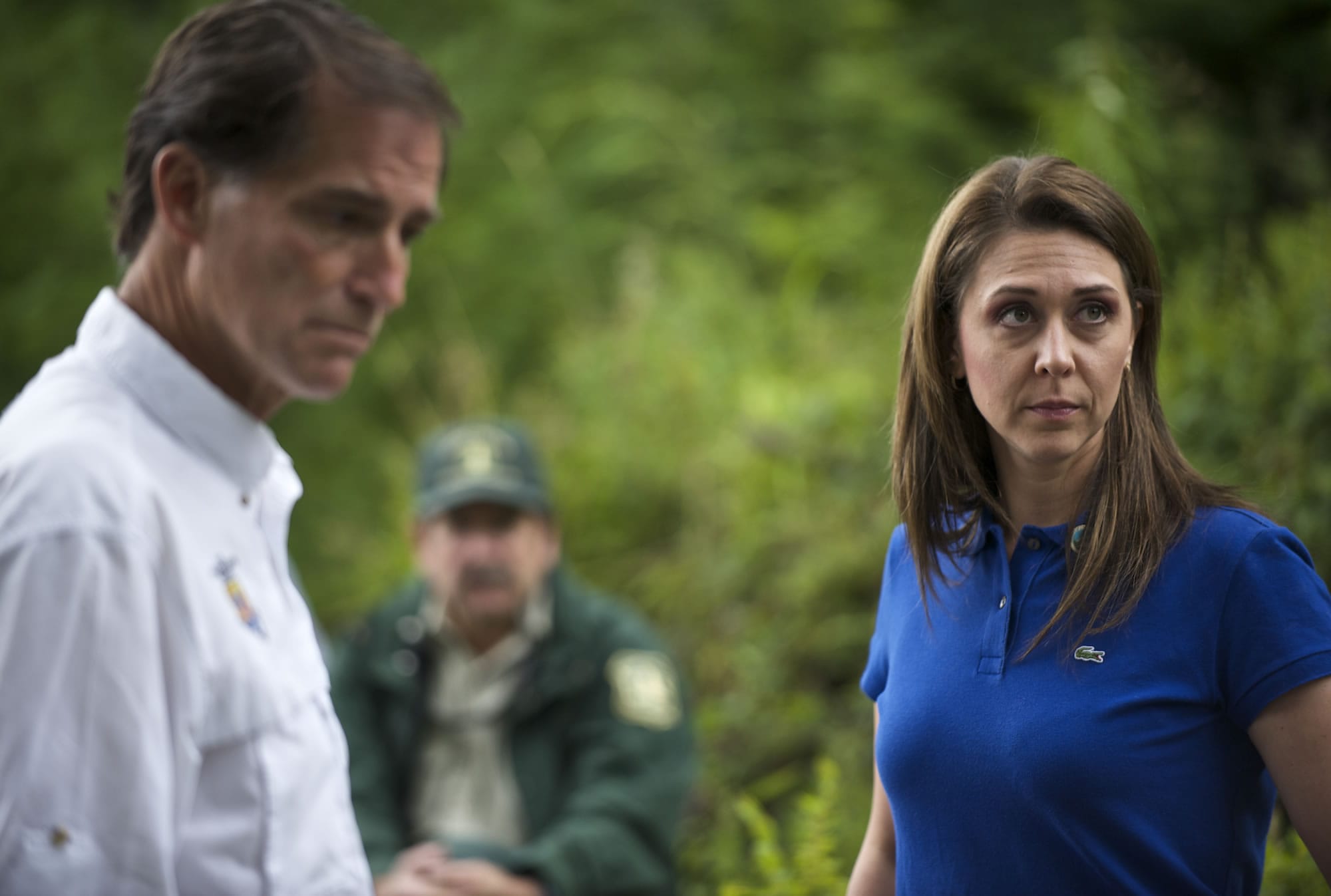There’s an internal congressional battle for wildfire management reform. The long-standing battle progressed Wednesday as the U.S. House approved the Resilient Federal Forests Act with a vote of 232 to 188.
The bill expands access to logging and exempts 30,000 acres of annual forest land activity from environmental review, refers federal Endangered Species Act lawsuits to an arbitrator in lieu of a courtroom and allows the U.S. Forest Service to use disaster funding to fight fires if earmarked funding runs out.
Local lawmakers agree: Something needs to be done to fix wildfire funding. But support for the Resilient Federal Forests Act is minimal. The White House doesn’t support the bill as is, according to a statement released Wednesday. The administration stated that it supports land management reforms outlined in the bill, but not the revisions to the Stafford Act, “which would force competition for funding between wildfires on Federal land and other disasters already covered by the Stafford Act, including hurricanes,” the statement read.
This isn’t the first time the Resilient Act has been introduced. The bill was first brought forward in 2015, when it passed in the House but died in the Senate. This time, the number of logging acres with categorical exclusions is up to 30,000, from a previously proposed 15,000. And the first 10,000 acres of clearcutting are exempt from public consideration, up from 5,000 acres in the 2015 version.
Rep. Jaime Herrera Beutler, R-Battle Ground, voted in favor of the bill both times.
“With the recent wildfires that drove people from their homes and scorched the habitat of countless endangered species, we are unfortunately reaping what was sown through 20-plus years of failed forest management,” Herrera Beutler said. “Skamania County was once the envy of other counties; now it struggles to pay for basic police protection and essential school services, and we have diseased forests and declining wildlife numbers to show for it. The bipartisan bill we passed today begins to reform this complete mismanagement of our forests in a manner that focuses on healthier ecosystems while preserving environmental safeguards.”
She added that legislators can either “have another wildfire season like this last one that is estimated to have emitted as much carbon from the California fires as every car in that state combined last year,” or move forward to protect the national forest system.
Sen. Patty Murray, D-Wash., agreed that Congress needs to address the growing threat of wildfires and do more to protect local communities.
“Which is why I’m fighting for bipartisan bills that emphasize prevention and improving forest health,” Murray said. “What I won’t support is legislation that not only fails to establish long-term solutions, but would also upend our bedrock environmental laws in the process.”
Sen. Maria Cantwell, D-Wash., is also against the bill.
“The House bill would lead to clearcutting our forests and lead to post-fire work that would cause flooding,” Cantwell said. “Further, much of this bill focuses on the salvage logging to happen after a wildfire. A smarter approach is to be proactive — to restore our most at-risk forests with better management ahead of wildfires.”
Murray and Cantwell instead favor the Wildland Fires Act and Wildfire Disaster Funding Act.
The Wildland Fires Act, introduced by Cantwell in October, provides up to $100 million in funding for at-risk communities to plan and prepare for wildfires and emphasizes prescribed fire to prevent future wildfires.
“Our bipartisan senate bill has all six senators from Washington, Oregon, and Idaho, who support reducing fire risk upfront and reduces costs,” Cantwell said.
Meanwhile, the Wildfire Disaster Funding Act attempts to fix fire funding issues. The U.S. Forest Service has to borrow funding from other parts of their budgets if allocated fire funding runs out. The bill creates a new budget for wildfire suppression, starting at $1.4 billion for fiscal year 2017 and increasing to nearly $2.7 billion in fiscal year 2026. The percentage of the forest service budget allocated to fighting wildfires would also be capped. Budget allocations are currently calculated using the average cost of wildfire suppression over the last 10 years.
Both bills await a vote in the Senate before moving to the House.




